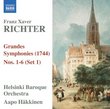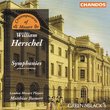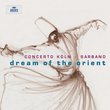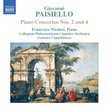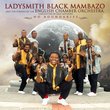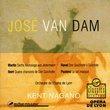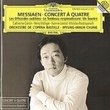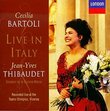| All Artists: Jean-Baptiste Davaux, Francois Martin, Karl Ditters von Dittersdorf, Francois-Joseph Gossec, Concerto Köln Title: La Prise de la Bastille: Music of the French Revolution Members Wishing: 0 Total Copies: 0 Label: Capriccio Release Date: 12/23/2008 Album Type: Import Genre: Classical Styles: Forms & Genres, Concertos, Historical Periods, Baroque (c.1600-1750), Instruments, Strings, Symphonies Number of Discs: 1 SwapaCD Credits: 1 |
Search - Jean-Baptiste Davaux, Francois Martin, Karl Ditters von Dittersdorf :: La Prise de la Bastille: Music of the French Revolution
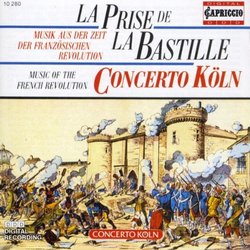 | Jean-Baptiste Davaux, Francois Martin, Karl Ditters von Dittersdorf La Prise de la Bastille: Music of the French Revolution Genre: Classical
|
Larger Image |
CD DetailsSimilar CDsSimilarly Requested CDs
|
CD ReviewsA well-recorded memorial to the music of the French revoluti Leslie Richford | Selsingen, Lower Saxony | 09/11/2008 (5 out of 5 stars) "La Prise de la Bastille. Music from the Time of the French Revolution: Jean-Baptiste "Citoyen" Davaux (1742 - 1822), Symphonie concertante en Sol pour deux violons principaux melées d'Airs patriotiques (RISM D 1174, publ. 1794); Francois Martin (1727 - 1757): Symphonie en Sol mineur, op. 4, no. 2 for strings and b.c.; Carl Ditters von Dittersdorf (1739 - 1799): "La Prise de la Bastille", Symphonie en Do majeur à grand orchestre; Francois-Joseph Gossec (1734 - 1829), Symphonie en Ré op. 3 no. 6 pour deux hautbois, cordes et b.c. Performed by Werner Ehrhardt and Andrea Keller, solo violins; Concerto Köln [Cologne] (strings: 4-4-2-2-1; harpsichord; flute; 2 oboes; 2 bassoons; 2 clarinets; 2 horns; timpani). Recorded at the Kulturforum, Kempen (Germany) in April 1989 and published by Capriccio (cat. 10 280) in 1989 to celebrate the two-hundredth anniversary of the French Revolution. Total playing time: 61'44". With this delightfully well-recorded CD, the conductorless chamber orchestra Concerto Köln gives a brilliant impression of the kind of music which was played in Paris between 1750 and 1800. Of course, everyone knows that Haydn and Mozart were popular in Paris, but here we have music by lesser figures who were, in their day, highly respected. The earliest piece is by the short-lived Francois Martin, a brief symphony (less than 11 minutes) published in 1751. This reflects the influence of Lully and Rameau in its opening fast movement, but then has a rather attractive gavotte played pizzicato as its second movement, followed by a closing fast movement that is obviously influenced by the Italian masters of the day. Gossec's early op. 3 no. 6 seems to be more influenced by the Mannheim school and, although I would not categorize it as important music, it does give a positive taste of his sense of melody and proportion. Dittersdorf's "Prise de la Bastille" is in the tradition of programme music and recreates the atmosphere of the French revolution with some military-sounding outbreaks. Dittersdorf was, of course, an Austrian, not a Frenchman, but the piece appears to have been popular in France after the event which it musically portrays. Jean-Baptiste Davaux was an enthusiastic follower of the Revolution, and in the Symphonie concertante played here he combines some Mozart-like "galanteries" with snatches of the "Marseillaise" and other popular revolutionary pieces to create a work which is light-weight but highly entertaining and offers Werner Ehrhardt and Andrea Keller the chance to shine with some up-tempo solo violin work." Incredible Dittersdorf! Alexander Mendez | South Pasadena, CA United States | 05/18/2009 (5 out of 5 stars) "I was a little trepidatious about buying this cd because I didn't really know the composers very well, but I was overcome by the catchy title and, of course, the excellent reputation of the Concerto Koln. I was not disappointed. The first movement of Dittersdorf's symphony is absolutely amazing. It starts out slowly, builds tension and then erupts into violent passion. This one should defnitely not be missed."
|

 Track Listings (12) - Disc #1
Track Listings (12) - Disc #1